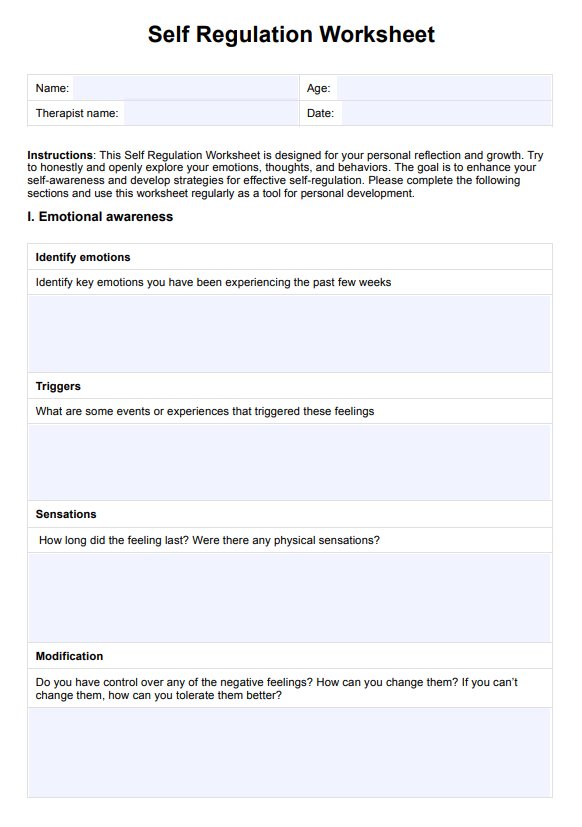Therapists, psychologists, social workers, and education professionals seeking to enhance their clients' emotional awareness and emotional regulation can all benefit from using the worksheet. This resource is targeted towards clients of all ages but may need to be customized to suit the developmental stage and self-regulation needs of young children.

Self Regulation Worksheets
Use our Self Regulation Worksheets to help clients build emotional control, manage stress, and develop healthier coping strategies.
Self Regulation Worksheets Template
Commonly asked questions
It is recommended that mental health professionals periodically dedicate specific times during therapy to regulation reflection and goal setting. This helps to foster consistency and improve self regulation practices.
Identifying feelings and secondary emotions within oneself is a crucial skill for effective social interactions and relationships. Developing effective coping skills for negative emotions helps alleviate emotional suffering and reduce the effect of experiencing overwhelming emotions on mental health.
EHR and practice management software
Get started for free
*No credit card required
Free
$0/usd
Unlimited clients
Telehealth
1GB of storage
Client portal text
Automated billing and online payments











